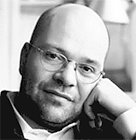Prof. em. Dr. Michael Hagner

Prof. em. Dr. Michael Hagner
Professor Emeritus at the Department of Humanities, Social and Political Sciences
ETH Zürich
Additional information
Michael Hagner has been Full Professor of Science Studies at ETH Zurich from October 2003 to January 2025.
Born in Bochum, Germany, in 1960, he studied medicine and philosophy at the Freie Universität Berlin. After obtaining his doctorate in medicine, he was a postdoctoral researcher at the Neurophysiological Institute of the FU (1987–89) and a visiting scholar at the Wellcome Institute for the History of Medicine in London (1989). He then worked as a research assistant at the Institute for the History of Medicine and Science at the Medical University of Lübeck (1989-91) and at the Institute for the History of Medicine at Georg August Universität in Göttingen (1991-95). In 1995, he received a Heisenberg Fellowship from the Deutsche Forschungsgemeinschaft, which took him to the Max Planck Institute for the History of Science in Berlin, where he worked as a senior scientist from 1997 to 2003.
Hagner was a visiting professor in Salzburg (1998), Tel Aviv (1999 and 2023), Frankfurt am Main (2000), Bielefeld (2002), and Cologne (2006). He was a fellow at the Collegium Helveticum of ETH Zurich (2001), at the Maison des Sciences de L'homme in Paris (2008), and at the International Research Center for Cultural Studies in Vienna (2015/16). Hagner was co-founder of the NCCR Bildkritik/Eikones (2005-2017) and the Zurich Center for the History of Knowledge (2005-2022). He is also a member of the Göttingen Academy of Sciences and Humanities in Lower Saxony, the Deutsche Akademie der Naturforscher Leopoldina and the Deutsche Akademie für Sprache und Dichtung, where he served as vice president from 2020 to 2023.
Most important awards: Prize of the Berlin-Brandenburg Academy of Sciences (2000); Sigmund Freud Preis für Wissenschaftliche Prosa from the Deutsche Akademie für Sprache und Dichtung (2008); Prize of the Aby Warburg Foundation and the Martin Warnke Medal (2014). His monographs Geniale Gehirne (2005) and Foucaults Pendel und wir (2021) were on the shortlist for the Leipzig Book Fair Prize (category: non-fiction/essays). (For CV and bibliography see below).
Since its inception, the research of the Science Studies Group has focused on problem-oriented historical studies that shed light on the emergence of theories, methods, and practices in various fields of the sciences and humanities. Our research methods have been committed to the so-called “practical turn” in science studies and histoy of science. Since scientific knowledge usually emerges in specific spaces but often only gains momentum through transfer to other social spaces, we have been interested in the emergence and adaptation, dissemination, and decline of knowledge in various political, cultural, and economic contexts. Our work has thus been dedicated to a deeper understanding of the epistemic processes that make knowledge so important for modern societies. We always started from the premise that one of the strengths of our scientific and intellectual self-image lies in communicating research results to both a specialized scientific community and a broader audience without being dependent on social media. For a full list of publications between 2003 and 2024 see here.
Our research areas can be summarized in four points:
a) The role of visualization and representational media in the sciences, the relationship between science and art, and the history of photography.
b) The history of the human sciences, neuroscience, life sciences, and cybernetics.
c) The relationship between science and democracy, science and activism, especially the historical development of Gegenwissen.
d) Research on the history of the book and the transformations of academic publishing in the digital age.
Academic publishing in the digital age
For about 20 years, we have been experiencing a profound change in academic publishing. While paper has become increasingly less important, digital publications have become the norm, at least in the STEM subjects. This development has been reinforced by political initiatives such as open access and by new business models that promote e-books and other digital publication formats. Our research started from the hypothesis that these changes affect the content and evaluation of scientific knowledge. We focused on the consequences of open access, the role of printed books, and the development of new publication formats. In 2018, a student and two postdocs from the department founded intercom Verlag, a non-commercial publishing project that aims to combine traditional book culture and open access for publications in the humanities.
The following persons have worked as Postdocs or PhD students in the Science Studies group:
Tina Asmussen, Ines Barner, Charlotte Bigg, Bernhard Boehm, Jan von Brevern, Kijan Espahangizi, Philipp Felsch, Peter Geimer, Stephan Graf, Nils Güttler, Caspar Hirschi, Sabine Hoehler, Hannah Kressig, Kevin Liggieri, Omar Nasim, Margarete Pratschke, Niki Rhyner, Marianne Sommer, Max Stadler, Karena Weduwen, Mario Wimmer, Vera Wolff, Monika Wulz.
vertical_align_bottomCV PDF